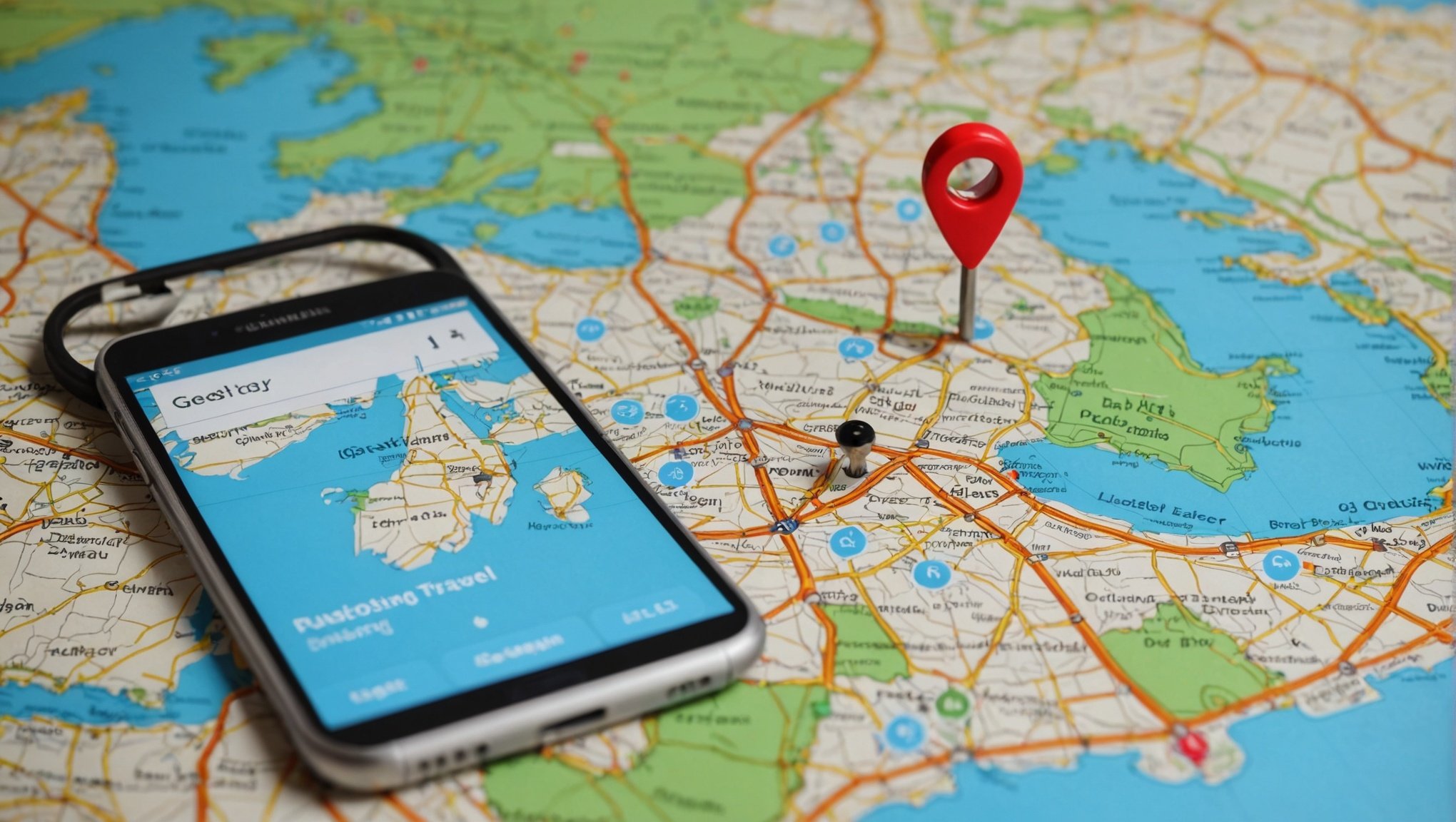Personalized travel experiences are reshaping the way we explore the world. UK travel agencies now have the opportunity to harness geolocation data, transforming how journeys are tailored. By understanding a traveler’s location and preferences, agencies can deliver bespoke recommendations, ensuring every trip feels unique and engaging. Discover how this innovative approach not only enhances customer satisfaction but also drives business growth, making travel more meaningful for everyone involved. Ready to unlock your next adventure?
Understanding Geolocation Data
Geolocation data is a powerful tool in today's travel technology landscape. It refers to the digital information that identifies the geographical location of a device or user. This data is primarily gathered through GPS, Wi-Fi, cellular networks, and IP addresses. These sources provide accurate location details, which are crucial for various applications.
Additional reading : Unlocking Donor Insights: A Guide for UK Non-Profits to Harness Machine Learning for Effective Segmentation
In the travel industry, geolocation data plays a pivotal role. It enhances user experiences by providing personalised recommendations and real-time updates. For instance, travel apps use this data to suggest nearby attractions, restaurants, and accommodation options, making trips more convenient and enjoyable. Additionally, airlines and ride-sharing services rely on geolocation to optimise routes and improve operational efficiency.
The collection and utilisation of geolocation data involve several processes. Devices with GPS capabilities constantly send location signals, which are then processed by servers to determine precise positions. Wi-Fi networks contribute by triangulating signals to refine location accuracy. Furthermore, cellular towers and IP addresses offer additional layers of data, ensuring comprehensive coverage.
Also to see : Top Strategies to Strengthen Cloud Security for UK Businesses
Understanding how geolocation data is gathered and applied can empower travellers and businesses alike. It not only enhances the travel experience but also enables companies to offer tailored services, ultimately leading to increased customer satisfaction and loyalty.
Benefits of Geolocation Data in Travel
Geolocation data significantly boosts personalised travel experiences by tailoring recommendations to individual preferences. When a traveller's location is known, apps can suggest activities and sights that align with their interests, enhancing the overall customer experience. For example, a foodie visiting a new city might receive notifications about nearby restaurants renowned for local cuisine, creating a more immersive experience.
In terms of efficiency, geolocation data streamlines travel planning and execution. By providing real-time updates, it enables travellers to make informed decisions, such as adjusting itineraries based on traffic conditions or weather changes. This adaptability ensures a smoother journey and maximises time spent enjoying the destination.
Case studies reveal the successful application of geolocation in the travel industry. One notable example is a major airline that used geolocation to improve its boarding process. By tracking passengers' locations within the airport, the airline could send timely boarding alerts, reducing wait times and enhancing the boarding experience.
Moreover, ride-sharing services utilise geolocation to match drivers with passengers efficiently, minimising wait times and optimising routes. These applications not only improve operational efficiency but also elevate the overall customer satisfaction, making travel more enjoyable and hassle-free.
Strategies for Travel Agencies to Implement Geolocation Data
Incorporating geolocation data into travel agency operations requires a strategic approach. To start, agencies need essential tools and technologies for seamless data integration. This includes robust software platforms capable of processing and analysing location data in real-time. By investing in these technologies, agencies can enhance their service offerings and provide more personalised travel experiences.
Best practices for effectively utilising geolocation data involve understanding customer preferences and tailoring recommendations accordingly. Agencies should leverage data analytics to gain insights into traveller behaviours and trends. This information can be used to suggest relevant destinations, activities, and accommodations, thereby increasing customer satisfaction and engagement.
Training staff is a crucial step in optimising operations. Employees should be equipped with the skills to interpret geolocation data and apply it in customer interactions. Regular training sessions can ensure that staff remain updated on the latest tools and techniques, enabling them to deliver superior service.
Lastly, agencies should continuously evaluate and refine their strategies. By monitoring the impact of geolocation data on customer experiences and operational efficiency, they can make informed adjustments to their approach, ensuring ongoing success in a competitive market.
Real-Life Examples of Geolocation in Action
Exploring real-life examples of geolocation in the travel industry reveals its transformative impact. Several UK travel agencies have successfully integrated geolocation into their operations, setting a benchmark for best practices. By analysing these case studies, we can understand the profound effect of personalised experiences on customer satisfaction.
One standout example is a UK-based agency that used geolocation to enhance its tour offerings. By tracking tourists' locations, the agency provided real-time updates and recommendations tailored to each traveller's preferences. This personalised approach not only increased customer engagement but also boosted overall satisfaction.
Another agency implemented geolocation to streamline its booking process. By analysing location data, they offered curated travel packages that matched customers' interests and proximity. This strategy resulted in higher booking rates and improved client retention.
Lessons learned from these cases highlight the importance of leveraging geolocation data to understand customer preferences. Agencies that effectively utilise this data can offer bespoke services, creating memorable travel experiences. Adopting these best practices can significantly enhance operational efficiency and customer loyalty, cementing an agency's position in a competitive market.
Challenges and Considerations in Using Geolocation Data
When leveraging geolocation data, several challenges and considerations come into play, particularly around data privacy. Ensuring compliance with data protection regulations such as GDPR is crucial. These regulations mandate that users must be informed about how their location data is collected, stored, and used. Companies must implement robust privacy policies and obtain explicit consent from users to avoid legal repercussions.
Technical challenges also arise in the integration and usage of geolocation data. Ensuring seamless data flow between devices and servers requires sophisticated software and infrastructure. Additionally, maintaining data accuracy and reliability is essential for providing valuable insights and services. Companies must invest in advanced technologies to process and analyse location data effectively.
Balancing personalisation with user consent is another critical consideration. While geolocation data can enhance user experiences by offering tailored recommendations, it is vital to respect user preferences and privacy. Users should have control over their data, with the option to opt out of location tracking if desired. Transparent communication about data usage fosters trust and encourages users to engage with personalised services.
Future Trends in Geolocation and Personalized Travel
The future of travel is set to be revolutionised by emerging technologies that leverage geolocation data for enhanced personalisation. As we look ahead, several predictions highlight the evolution of geolocation in the travel industry.
First, the integration of artificial intelligence (AI) with geolocation data is expected to refine personalisation further. AI can analyse vast amounts of location data to predict traveller preferences and offer tailored recommendations, enhancing the travel experience.
Moreover, the development of augmented reality (AR) applications promises to transform how travellers interact with their surroundings. By overlaying digital information onto the physical world, AR can provide real-time, location-based insights, enriching the exploration of destinations.
Consumer expectations are also shifting towards more seamless and intuitive travel experiences. Travellers increasingly demand instantaneous updates and customised itineraries that adapt to their changing preferences and circumstances. This shift necessitates the continuous advancement of geolocation technologies to meet these evolving needs.
Emerging trends suggest a future where travel is not only more personalised but also more responsive to individual desires. As technology progresses, the travel industry must adapt to these innovations, ensuring they align with consumer demands and enhance the overall journey.
Tips for Travelers on Leveraging Geolocation for Their Journeys
Understanding how to utilise geolocation apps can significantly enhance your travel experiences. These apps provide real-time updates, helping you navigate unfamiliar locations with ease. By using apps that offer geolocation features, travellers can receive instant suggestions for nearby attractions, dining options, and events, making trips more engaging and tailored to personal preferences.
To make the most of geolocation benefits, consider personalising your travel plans using the data these apps provide. Start by selecting preferences within the app settings, such as interests in culture, food, or outdoor activities. This allows the app to curate recommendations that align with your tastes, ensuring a more enjoyable and customised journey.
Encouraging feedback and sharing your experiences with app developers and fellow travellers can also improve services. By providing insights into what worked well or areas needing improvement, you contribute to the enhancement of geolocation technology. This collaborative approach not only benefits future travellers but also helps refine the accuracy and relevance of the app's recommendations.
Incorporating these traveler tips into your planning can transform your travel adventures, making them more efficient and memorable.











